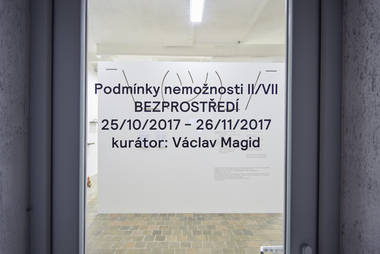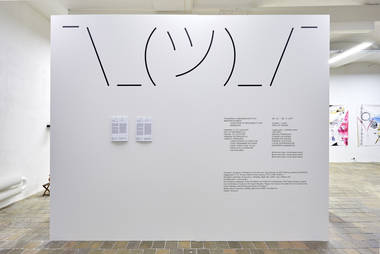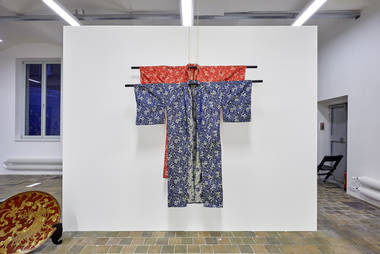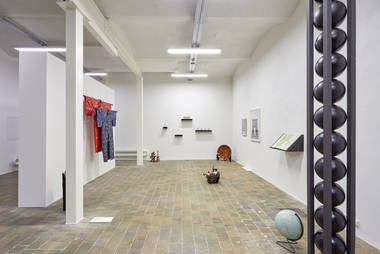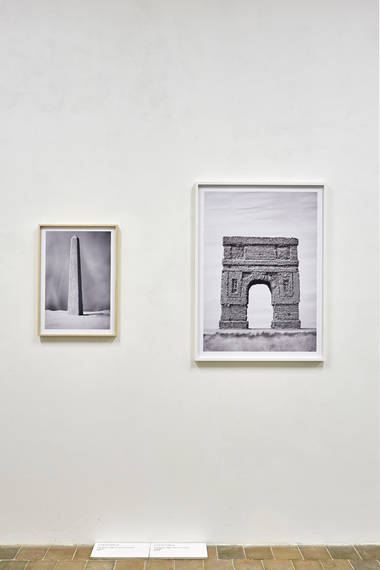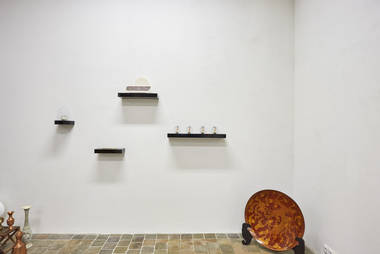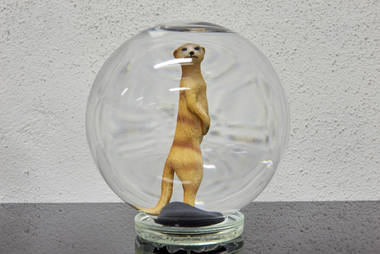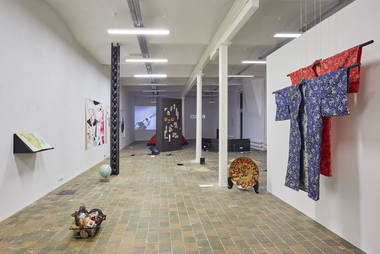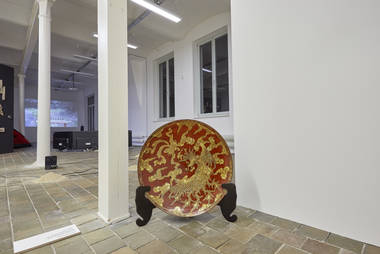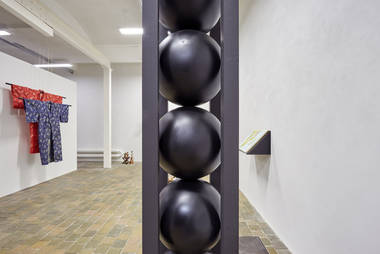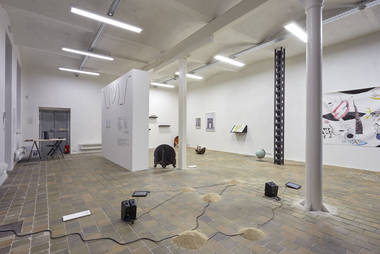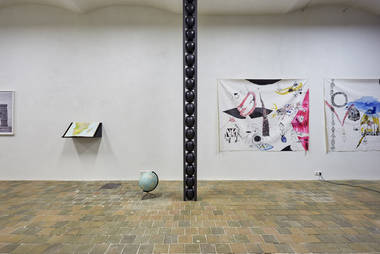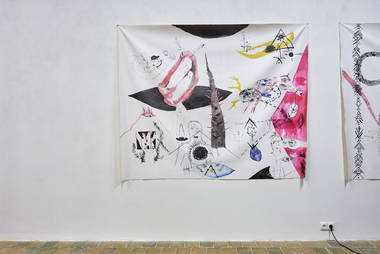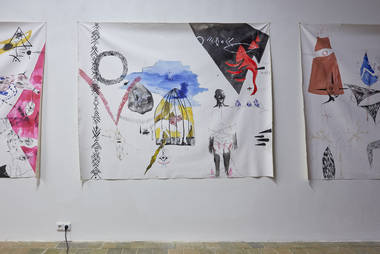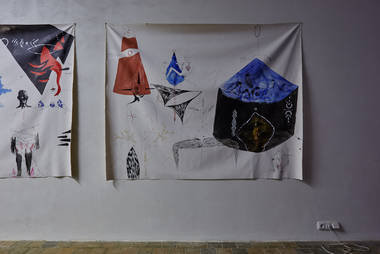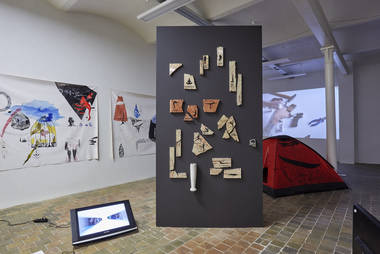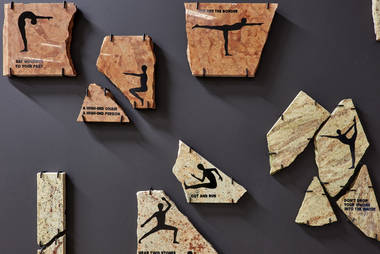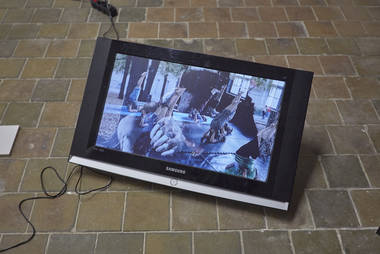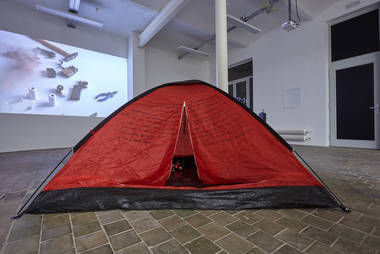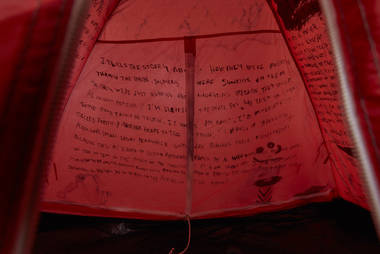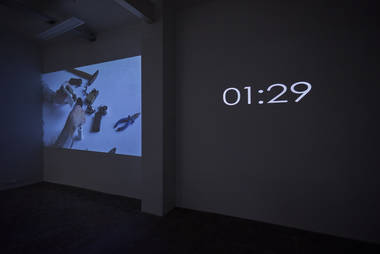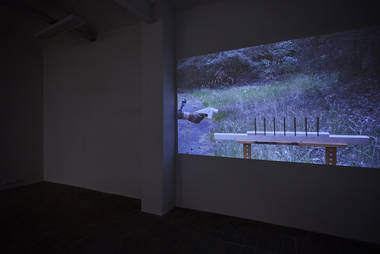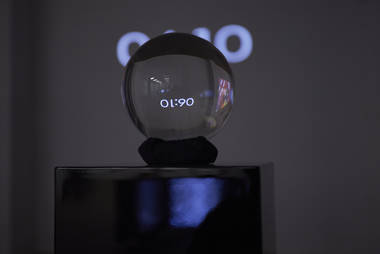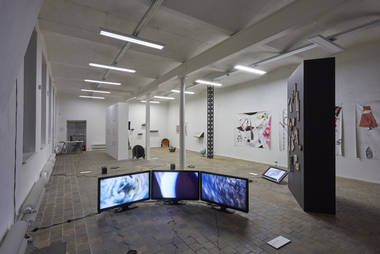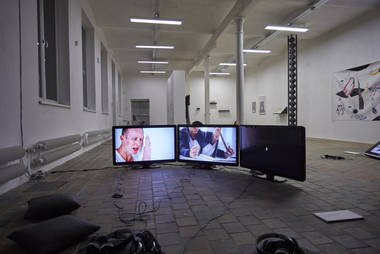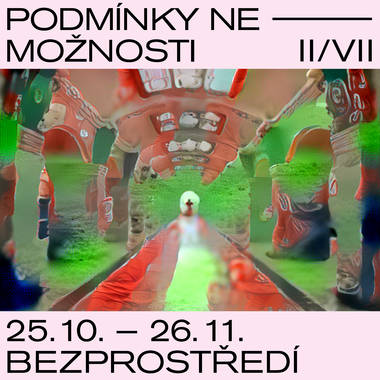Conditions of impossibility II/VII
(Im)mediate
group exhibition
Barbora Dayef, Marta Fišerová, Tomáš Kajánek, Markéta Magidová, Lucia Sceranková, Marika Volfová, Jiří Žák
25. 10. – 26. 11. 2017
opening: 24. 10. 2017
guided tour: 22. 11. 2017
curated by: Václav Magid
The exhibition (Im)mediate is the second part of the project entitled Conditions of Impossibility. The project consists of a cycle of seven thematically linked exhibitions that reflect critically on the state in which the subject finds itself from the viewpoint of a ‘curator without perspective’. Each exhibition focuses on the individual conditions and structures delimiting the (im)possibility of our knowledge, actions and aesthetic experience: time, space, work, language, humanity, technology and psychology.
Spatial orientation becomes problematic when the unity of space is lost. And yet this is precisely what is happening at present. The horizon of the common world that we share with others has become so blurred that the mere mention of it elicits a sarcastic smirk, while our immediate surroundings, through which the individual forges their path through life, are fragmenting into a series of mutual incompatible domains.
The possibility of regarding rootlessness as an opportunity to invent new worlds, something that artists have done since the dawn of modernity, has become an obligation for everyone as a consequence of the political, economic and ecological changes that have taken place over the last few decades. Within the context of globalised conditions of production and consumption, we can and indeed must move between places, contexts and identities with the same ease that we leap from tab to tab in a web browser. Despite the fatigue induced by constant movement, we relish the permeability of borders that allows us to broaden the spectrum of forms of life that can be savoured. However, these borders are being closed to those who are forced to cross them in their struggle for ‘bare life’. Contemporary art is both the embodiment of the ideological fiction of global unity and the criticism thereof, since it operates on transnational platforms as the practice of translation between local experiences. There is a similar ambivalence at play in the global information and communication network: the more at home we feel in this network, the more we use it to defend our particular homelands in the ‘real world’. Against the backdrop of the decline of the liberal concept of multiculturalism, which simply confirms the condescending superiority of the dominant social group over others, we are witnessing the return of racist identity politics. While there is a struggle taking place in the media space between zombie-concepts such as ‘national culture’ and ‘civilisation’, global economic inequality and anthropogenic climatic change, which form the material base of these conflicts, continue to resist politicisation. These are such complex phenomena that it is almost impossible to imagine a conscious human act that could change them. However, failure to strive for such an act entails the abnegation of responsibility for the consequences of human activity up till now. And so we are faced with a dilemma: the complexity of the modern world makes it impossible for us to find our way around it; and yet we must find our way around this complex world in order to change it.
Václav Magid
(transl. Phil Jones)
Cursor Gallery is suported by MKČR, Magistrát hl. m. Prahy, Státní fond kultury ČR, MČ Praha 7
Media partners: Artycok.tv, ArtMap, jlbjlt.net, UMA: You Make Art
